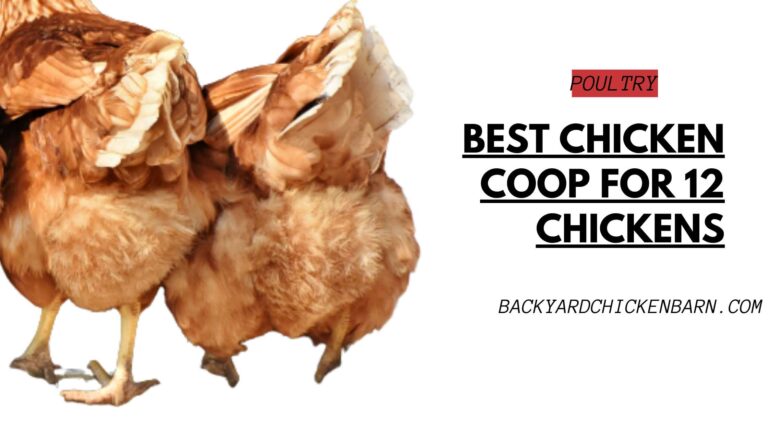Rules for Keeping Chickens in NSW
Keeping chickens in New South Wales (NSW) is a popular practice among urban and rural residents alike, offering benefits such as fresh eggs, natural pest control, and organic waste reduction. However, it’s essential to understand the regulations and best practices to ensure the welfare of the chickens and maintain good relations with neighbors.
Legal Framework
In NSW, the regulation of poultry keeping is primarily governed by local councils, with overarching guidelines provided by state legislation and agencies. The key legislative and regulatory frameworks include:
- Local Government Act 1993: Empowers local councils to regulate land use and animal keeping within their jurisdictions.
- State Environmental Planning Policy (Exempt and Complying Development Codes) 2008: Provides guidelines for exempt and complying development, including certain types of poultry keeping.
- NSW Food Authority: Regulates the sale of eggs and poultry meat, including food safety standards.
- Local Land Services (LLS): Provides resources and guidelines for livestock management, including poultry.
Local Council Regulations
Each local council in NSW may have its own specific regulations regarding the keeping of chickens. Common requirements across many councils include:
- Number of Chickens: Typically, a maximum of 10 hens (no roosters) is permitted in residential areas. However, this limit can vary, and some councils may allow more chickens on larger properties.
- Coop Placement: Chicken coops must be located in the rear yard and a specified distance from property boundaries and neighboring dwellings. For example, Lithgow City Council requires poultry housing to be at least 4.5 meters from any dwelling or public hall.
- Coop Size: The size of the chicken coop is often regulated to ensure adequate space for the birds. For instance, Lithgow City Council stipulates that poultry housing should have a floor area of less than 15m² on residential zoned land.
- Roosters: Roosters are generally prohibited in residential areas due to noise concerns.
- Permit Requirements: Some councils may require a permit for keeping chickens, especially if the number exceeds the standard limit or if the property is within certain zones.
It’s crucial to check with your local council for specific regulations applicable to your area.
Animal Welfare and Care Standards
Ensuring the welfare of chickens is paramount. The RSPCA NSW provides guidelines for the care and management of backyard chickens, emphasizing:
- Housing: Chickens should have access to a well-ventilated, secure, and dry coop with adequate space. The coop should be cleaned regularly to prevent the buildup of waste and odors.
- Diet: Provide a balanced diet appropriate for the age and breed of the chickens. Fresh water should always be available.
- Health: Regular health checks are essential to monitor for signs of illness or distress. Prompt veterinary attention should be sought if any health issues arise.
- Social Needs: Chickens are social animals and should be kept in groups to prevent loneliness and associated behavioral problems.
Following these guidelines helps ensure the chickens’ health and well-being and complies with animal welfare standards.
Biosecurity and Disease Control
Biosecurity is vital to prevent the spread of diseases among poultry populations. The NSW Department of Primary Industries (DPI) provides resources on biosecurity measures for poultry keepers, including:
- Property Identification Code (PIC): Required for properties with more than 100 chickens. This code helps in disease traceability and management.
- Quarantine Measures: Isolate new birds for a period before introducing them to existing flocks to monitor for signs of disease.
- Movement Restrictions: Adhere to any movement restrictions imposed during disease outbreaks to prevent the spread of infections.
In 2024, NSW experienced an outbreak of the H7N8 avian influenza strain in the Hawkesbury region, leading to the culling of hundreds of thousands of chickens. This incident underscores the importance of strict biosecurity practices to protect poultry health.
Benefits of Keeping Chickens
Keeping chickens offers several benefits, including:
- Fresh Eggs: Enjoy a regular supply of fresh, home-laid eggs.
- Waste Reduction: Chickens consume food scraps, reducing household waste.
- Natural Fertilizer: Chicken manure is an excellent fertilizer for gardens when composted properly.
- Educational Opportunities: Teaching children responsibility and the origins of their food.
- Companionship: Chickens can be engaging and entertaining pets.
Challenges and Considerations
While keeping chickens can be rewarding, there are challenges to consider:
- Noise: Roosters can be noisy, and their crowing may disturb neighbors. As such, roosters are generally prohibited in residential areas.
- Odor: Without proper maintenance, chicken coops can emit unpleasant odors.
- Predators: Chickens are vulnerable to predators such as foxes, dogs, and birds of prey.
- Legal Compliance: Ensure compliance with local council regulations to avoid fines or other penalties.
Getting Started
If you’re considering keeping chickens, follow these steps:
- Check Local Regulations: Contact your local council to understand the specific regulations in your area.
- Design a Suitable Coop: Ensure the coop meets space, ventilation, and security requirements.
- Acquire Healthy Birds: Purchase chickens from reputable sources to ensure they are healthy and disease-free.
- Provide Proper Care: Follow the RSPCA guidelines for feeding, health checks, and social needs.
- Implement Biosecurity Measures: Follow DPI recommendations to prevent disease transmission.
Conclusion
Raising chickens in NSW can be a fulfilling and sustainable endeavor. By adhering to local regulations, ensuring the welfare of the birds, and implementing biosecurity measures, you can enjoy the benefits of backyard poultry keeping while contributing to a healthy and harmonious community.


